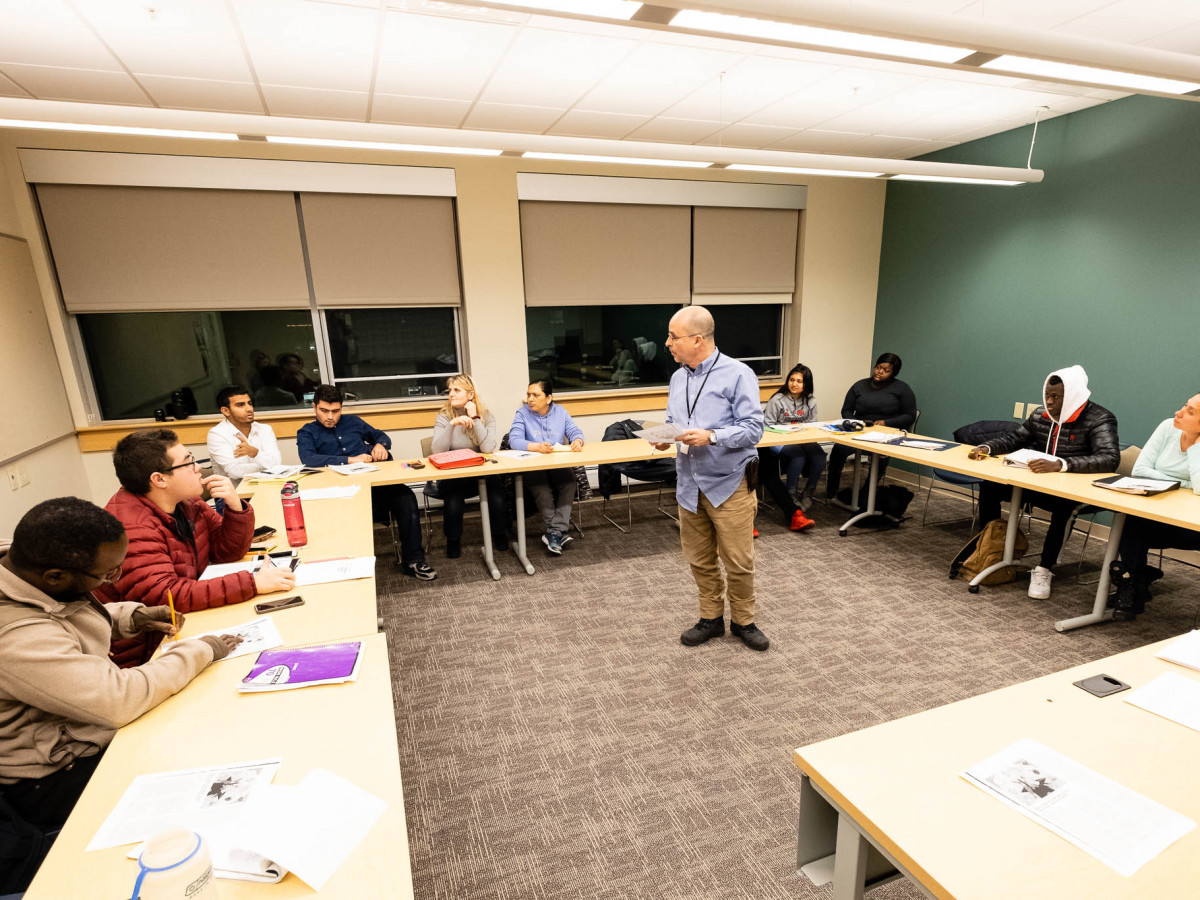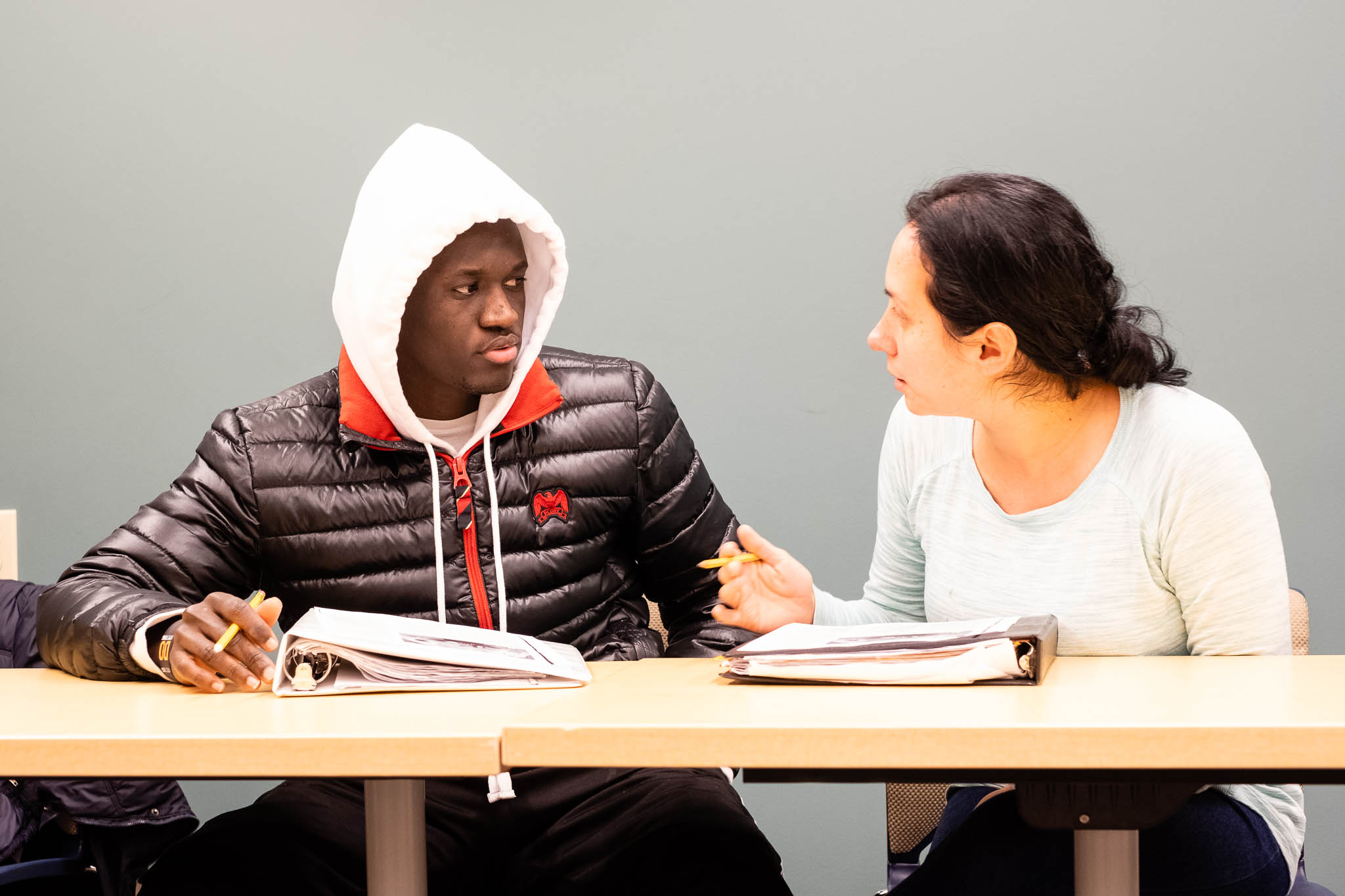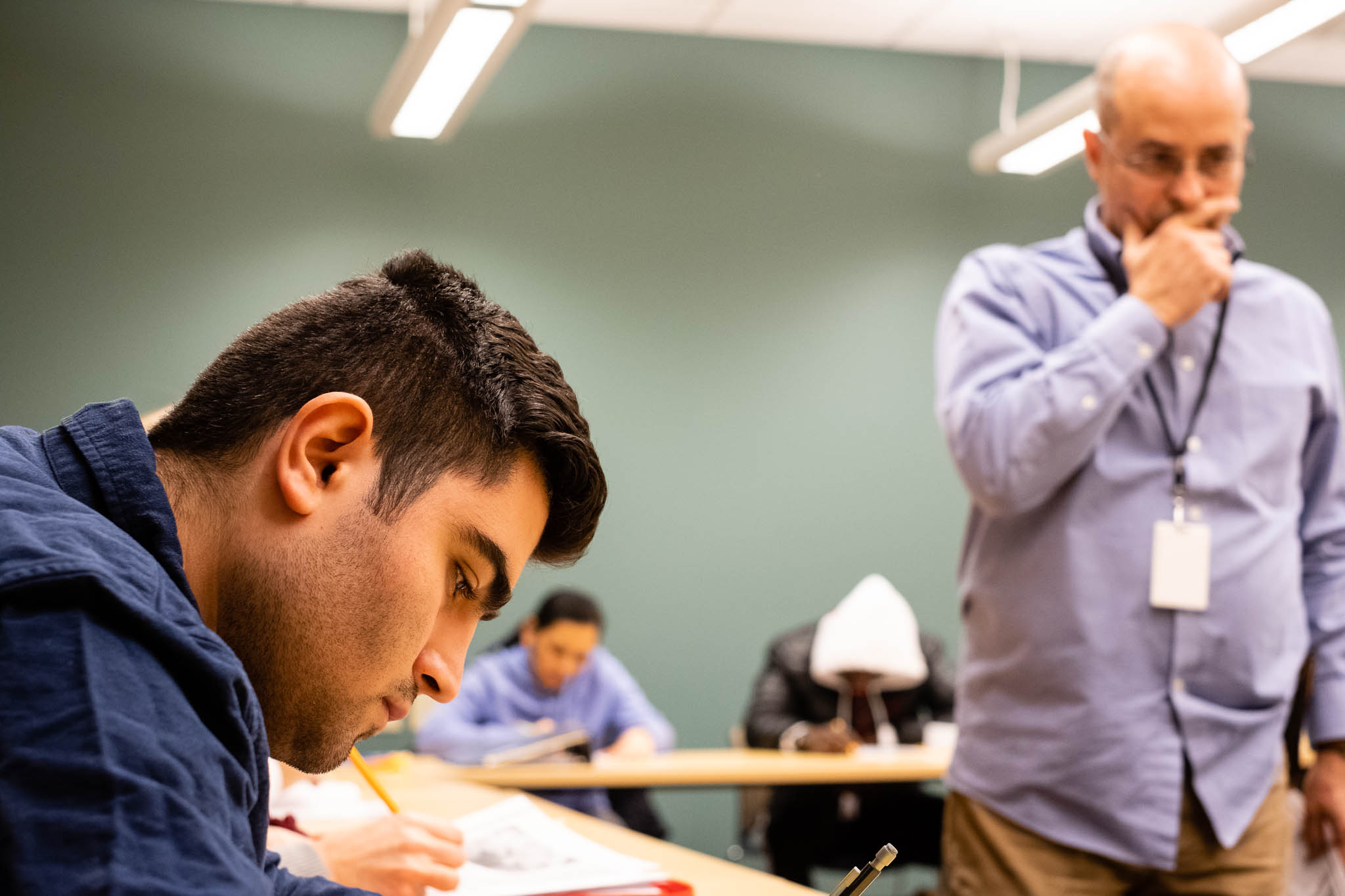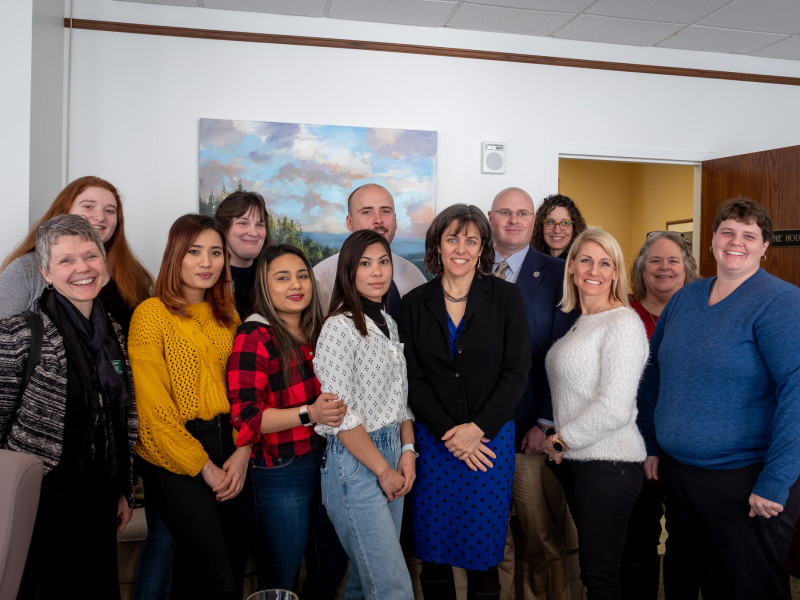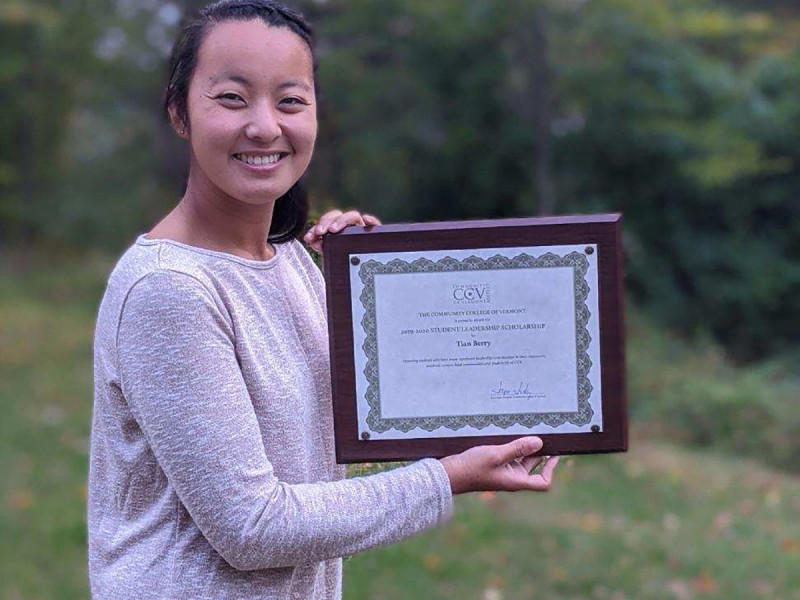
The largest county in Vermont is growing—barely. Between 2009 and 2015, the total population of Chittenden County grew by 5.8%. Meanwhile, the county’s foreign born population grew by 34.7%. That’s good news for Vermont’s workforce. Yet most of that group speaks a native language other than English, which means many face a major hurdle when it comes to navigating housing, transportation, and jobs as they settle into new lives in the Green Mountain State.
That’s why CCV is offering a brand new class for students who are non-native English speakers. In a warm corner classroom on the first floor of CCV-Winooski last Thursday night, fifteen students were hard at work. English for Academic Purposes was introduced as part of a broad effort to support the growing population of CCV students who self-identify as multilingual or new American. English is the second language of nearly everyone in the room; students here are speakers of Spanish, Vietnamese, Haitian Creole, Turkish, and Portuguese, to name a few.
Lizette Davis moved to Vermont from Mexico in 2008, and has a busy life taking care of her three young children and working part-time. But she feels like improving her English could improve her job prospects. “I’m thinking about pursuing a career, so I want to get my reading and writing skills stronger before I take a future class.” She’s interested in nursing, currently one of the highest-demand career fields in Vermont.
Dave Amsden is a coordinator of academic services at CCV-Winooski, and he played a big role in bringing this class to fruition. He says roughly 15% of the student body at the Winooski academic center—the largest of CCV’s twelve centers—self-report as multilingual, and 22% identify as a racial or ethnic minority. And those numbers have doubled in the past decade. While the College has long considered first generation, Pell-eligible, and high school students integral to its definition of diversity, Amsden says that at the College’s Chittenden County center, the racial and ethnic makeup of the student body is changing dramatically. In the past two years, CCV-Winooski has enrolled students from more than 100 countries.
The three-credit English for Academic Purposes class is taught by Gilberto Diaz Santos. He says one of the things he finds most exciting about CCV is that despite Vermont’s generally overwhelming homogeneity, “I have a very wide cultural and linguistic diversity in the class…One student said this is like the United Nations.”
Diaz Santos has been a faculty member at the Winooski campus since 2016. He says he’s had to work harder than he ever did in his home country of Cuba. “I think that teaching here at CCV has made me perhaps a better teacher. In Cuba, for example, I would teach college students and the only thing that they had to do was to study. But here, you have students who have different learning trajectories, different learning backgrounds…I’m very very happy that this is happening because I have to make a greater effort to cater to my students’ learning needs.”
Indeed, most CCV students attend part-time because they’re also working part- or full-time jobs. Many are also caregivers for children or elderly relatives, and some are still in high school (Diaz Santos’s class includes a wide range of ages; some are recent high school graduates and one student is a grandmother). Diaz Santos believes a class like his can be helpful not only for English Language Learners but also for native speakers who are transitioning to a college environment. “We deal with several aspects of higher education, and they might need the translation from high school to college,” he says. “It’s a different ball game.”
During Thursday’s evening class meeting, students were taking a close look at an article that appeared last month in Time, “How to help your kids get a great education—and not go broke.” Diaz Santos led the class through identifying the article’s title, author, and source, and then asked the class to pick out the most salient points and write a summary. The room grew silent as students hunched over their pages, intent on getting their sentences just right.
Rolph Belizaire writes in a neat, looping script. Each time Diaz Santos adds a new layer to the assignment, Belizaire laughs. “I don’t speak English,” he says before diving back into his work. Belizaire studied law in his native Haiti, and here in Vermont he wants to pursue a career in social work. But he says school is the first step toward that goal, so he started at CCV this fall with two classes. “When you go to school, you have more possibilities.” He says he’s come a long way since the beginning of the semester. “If you want to study in the U.S., [this] is the best way to reach university.”
Amsden and fellow staff members are spearheading multiple initiatives that expand support for new Americans, students of color, and English Language Learners. The Winooski center has hosted a community-wide Diversity Dialogues series and guest speaker sessions on immigration rights, and provides ongoing professional development for staff. Non-native English speakers have access to special tutoring support at the Evelyn Hoffman Donovan Learning Center. Many students and staff are actively involved in local refugee resettlement efforts. Amsden appeared in a recent Vermont Edition conversation about cultivating diversity on college campuses around the state.
Amsden has one last message he wants prospective students to hear. “This is your school,” he says. “This school is created and continues to serve you…we want our community to be a place where as many people as possible are continuing their education.”
English for Academic Purposes with Gilberto Diaz Santos will be offered again in spring 2019. Visit ccv.edu/apply to apply today.

